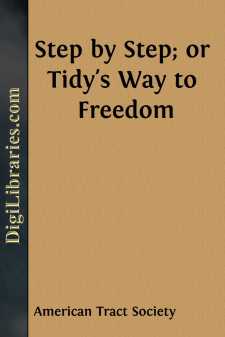Categories
- Antiques & Collectibles 13
- Architecture 36
- Art 48
- Bibles 22
- Biography & Autobiography 816
- Body, Mind & Spirit 145
- Business & Economics 28
- Children's Books 18
- Children's Fiction 14
- Computers 4
- Cooking 94
- Crafts & Hobbies 4
- Drama 346
- Education 58
- Family & Relationships 59
- Fiction 11831
- Foreign Language Study 3
- Games 19
- Gardening 17
- Health & Fitness 34
- History 1378
- House & Home 1
- Humor 147
- Juvenile Fiction 1873
- Juvenile Nonfiction 202
- Language Arts & Disciplines 89
- Law 16
- Literary Collections 686
- Literary Criticism 179
- Mathematics 13
- Medical 41
- Music 40
- Nature 179
- Non-Classifiable 1768
- Performing Arts 7
- Periodicals 1453
- Philosophy 66
- Photography 2
- Poetry 897
- Political Science 203
- Psychology 45
- Reference 154
- Religion 516
- Science 126
- Self-Help 86
- Social Science 82
- Sports & Recreation 34
- Study Aids 3
- Technology & Engineering 59
- Transportation 23
- Travel 463
- True Crime 29
Our website is made possible by displaying online advertisements to our visitors.
Please consider supporting us by disabling your ad blocker.
Step by Step; or Tidy's Way to Freedom
Categories:
Description:
Excerpt
CHAPTER I. INTRODUCTION.
MY DEAR CHILDREN,—All of you who read this little book have doubtless heard more or less of slavery. You know it is the system by which a portion of our people hold their fellow-creatures as property, and doom them to perpetual servitude. It is a hateful and accursed institution, which God can not look upon but with abhorrence, and which no one of his children should for a moment tolerate. It is opposed to every thing Christian and humane, and full of all meanness and cruelty. It treats a fellow-being, only because his skin is not so fair as our own, as though he were a dumb animal or a piece of furniture. It allows him no expression of choice about any thing, and no liberty of action. It recognizes and employs all the instincts of the lower, but ignores and tramples down all the faculties of his higher, nature. Can there be a greater wrong?
It is said by some, in extenuation of this wrong, that the slaves are well fed and clothed, and are kindly, even affectionately, looked after. This is true, in some cases,—with the house-servants, particularly,—but, as a general thing, their food and clothing are coarse and insufficient. But supposing it was otherwise; supposing they were provided for with as much liberality as are the working classes at the North, what is that when put into the balance with all the ills they suffer? What comfort is it, when a wife is torn from her husband, or a mother from her children, to know that each is to have enough to eat? None at all. The most generous provision for the body can not satisfy the longings of the heart, or compensate for its bereavements.
They suffer, also, a constant dread and fear of change, which is not the least of their torturing troubles. A kind owner may be taken away by death, and the new one be harsh and cruel; or necessity may compel him to sell his slaves, and thus they may be thrown into most unhappy situations. So they live with a heavy cloud of sorrow always before them, which their eyes can not look through or beyond. There is no hope—no EARTHLY hope—for this poor, oppressed race.
Their minds, too, are starved. No education, not even the least, is allowed. It is a criminal offense in some of the States to teach a slave to read. Now, if they could be made to exist without any consciousness of intellectual capacity, it would not be so bad. But this is impossible. They think and reason and wonder about things which they see and hear; and, in many cases, feel an eager desire to be instructed. This desire can not be gratified, because it would unfit them for their servile condition; therefore all teaching is rigidly denied them. The treasures of knowledge are bolted and barred to their approach, and they are kept in the utmost darkness and ignorance. Oh, to starve the mind!—Is it not far worse than to starve the body?
There is yet another process of famishing to which the slaves are subjected. They are not, as a general thing, taught by their masters about God, the salvation of Jesus Christ or the way to heaven....




